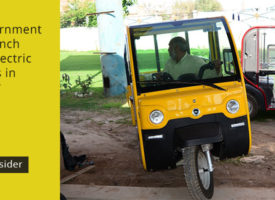Lord Mountbatten after realizing the dire need of a separate homeland for Muslims and Hindus, declared that power would be transferred from the British to the Indians by June 1947. The escalating tensions post partition did not end just there. Neither have they ended after the three wars, the neighbouring nations have fought within a time frame of 30 years after partition.
At the time of partition, the distribution of assets was not done evenly and history stands witness to that so no point in negating the facts. What was not realized at that time was that India had full control over that one resource without which human life would cease to exist- water.
Water that reaches the two nations comes from the Himalayan glaciers which passes through Indian controlled Jammu and Kashmir. Pakistan’s government had grave concerns over this matter to which the Inter- Dominion Accord of 1948 catered to. According to this accord, India would release water into Pakistan for which it would receive regular payments.
The Pakistani citizenry was extremely uptight about this and its concerns proved valid when in 1948 Pakistan’s water supplies were cut off by an Indian administrator. This led the leaders of the nation to take this matter to the International Court of Justice but India was always hesitant to follow suit.
It was on September 19, 1960 that a deal was brokered between the then Indian Prime Minister Jawaharlal Nehru and Ayub Khan, the President of Pakistan. It was termed as the Indus Waters Treaty according to which, control of water from the western rivers of Indus, Jhelum and Chenab was handed over to Pakistan and India would have complete access to the waters from Sutlej, Beas and Ravi, the eastern waterways.
The point of conflict that the two neighbours now face is again majorly concerned with the water supply. India has proposed construction of four dams on River Chenab to which the Pakistani side has a clash of interest and that is legitimate. As per the treaty, both the country’s if were to build dams, a prerequisite was to inform the counterpart before proceeding with the plan. The plan would only materialize on the total consensus of both the nations.
India repeatedly has gone off the track and without providing prior notice to Pakistan has been head on with its strategy of building dams on the rivers which are to provide water to Pakistan.
Recently, there are four hydroelectric power projects including the Rattle, Pakal Dul, Miyar and Lower Kalnai which India has unfolded to counter its constant power shortages. Earlier too Pakistan questioned the construction of Kishenganga, Nimoo Bazgo, Wullar Barrage and Chutak projects which were carried on without the consensus of Pakistan. Isn’t this an international crime being carried out time and again?
If India has to provide for its population which will soon be one of the most populous nation of the world, then what about Pakistan? The latter being an agricultural country with extremely fertile soil, a major portion of its economy is agrarian. Definitely, concerns will arise if the citizenry of Pakistan is unsure about the Indian strategy which over the years has been hostile.
The deadlock on the water issue between the two nations will now finally be addressed from 23rd August to 27th August when a 10 squad Indian delegation is set to meet their Pakistani counterpart in Lahore.
Will the meetings bring any fruitful results and solve the age old tussle between the two rivals? That will be decided with time and as it will unfurl.
With the continuous strife that Pakistan encounters, it has become a major need of the time that the government realizes the utmost urgency of the situation which should be addressed at the earliest. What Pakistan needs is stability so that the ruling echelons can work upon the water crisis which have been ongoing since decades now. Building dams should be an unconditional priority which each and every party of the current government as well as the opposition while keeping all their disparities aside.
Atleast water and its crucial importance in the lives of each and every individual is indisputable.








this is quite informative, but only criticizes to Indian infrastructural progress to manage crisis. what pakistan is doing to preserve it water for future utilization according to development of its population is most crucial problem missing in this article.